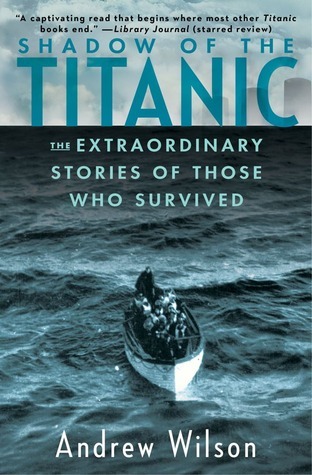What do you think?
Rate this book


400 pages, Paperback
First published January 1, 2011
Bruce Ismay "As it was, it seems he made an unconscious decision to cast himself as an eager participant in the drama in which he played the role of the victim. In fact, the Titanic disaster and its brutal aftermath tapped into a deep-seated desire to be punished. Bruce Ismay was a masochist at heart and his thoroughly unpleasant treatment after the Titanic sank gave him the perfect opportunity to satisfy a clutch of previously unacknowledged impulses." p. 198
Dorothy Gibson "Although the couple married in February 1910, by the summer of the same year the union had disintegrated. Perhaps Battier had become confused by the mixed messages portrayed in Fisher's images of his sweetheart. Had he based his desire for Dorothy on her innocence or her sexuality? What did he want her to be - girl or woman? Was he shocked by her lack of experience in the bedroom or her rather too abundant knowledge?" p. 253